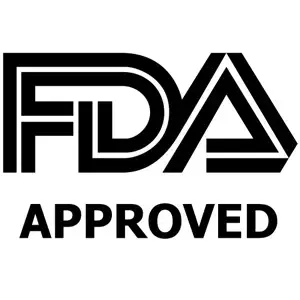- Home
- Medical news & Guidelines
- Anesthesiology
- Cardiology and CTVS
- Critical Care
- Dentistry
- Dermatology
- Diabetes and Endocrinology
- ENT
- Gastroenterology
- Medicine
- Nephrology
- Neurology
- Obstretics-Gynaecology
- Oncology
- Ophthalmology
- Orthopaedics
- Pediatrics-Neonatology
- Psychiatry
- Pulmonology
- Radiology
- Surgery
- Urology
- Laboratory Medicine
- Diet
- Nursing
- Paramedical
- Physiotherapy
- Health news
- Fact Check
- Bone Health Fact Check
- Brain Health Fact Check
- Cancer Related Fact Check
- Child Care Fact Check
- Dental and oral health fact check
- Diabetes and metabolic health fact check
- Diet and Nutrition Fact Check
- Eye and ENT Care Fact Check
- Fitness fact check
- Gut health fact check
- Heart health fact check
- Kidney health fact check
- Medical education fact check
- Men's health fact check
- Respiratory fact check
- Skin and hair care fact check
- Vaccine and Immunization fact check
- Women's health fact check
- AYUSH
- State News
- Andaman and Nicobar Islands
- Andhra Pradesh
- Arunachal Pradesh
- Assam
- Bihar
- Chandigarh
- Chattisgarh
- Dadra and Nagar Haveli
- Daman and Diu
- Delhi
- Goa
- Gujarat
- Haryana
- Himachal Pradesh
- Jammu & Kashmir
- Jharkhand
- Karnataka
- Kerala
- Ladakh
- Lakshadweep
- Madhya Pradesh
- Maharashtra
- Manipur
- Meghalaya
- Mizoram
- Nagaland
- Odisha
- Puducherry
- Punjab
- Rajasthan
- Sikkim
- Tamil Nadu
- Telangana
- Tripura
- Uttar Pradesh
- Uttrakhand
- West Bengal
- Medical Education
- Industry
FDA approves first treatment for kids born without thymus

The U.S. Food and Drug Administration has approved Rethymic for the treatment of pediatric patients with congenital athymia, a rare immune disorder. Rethymic is the first thymus tissue product approved in the U.S.
The Food and Drug Administration granted approval of Rethymic to Enzyvant Therapeutics, Inc.
Rethymic is composed of donor-derived thymus tissue that is processed and cultured, and then implanted into patients to help reconstitute immunity (improve immune function) in patients who are athymic. Dosing is patient‑customized, determined by the surface area of the Rethymic slices and the body surface area of the patient. Rethymic is not indicated for the treatment of patients with severe combined immunodeficiency (SCID).
"Today's action marks the first Food and Drug Administration approval of a therapy to treat this very rare and devastating disease in children," said Peter Marks, M.D., Ph.D., director of the FDA's Center for Biologics Evaluation and Research. "We remain committed to helping advance the development of safe and effective medical products for patients affected by rare diseases – an area of such critical need."
Congenital athymia is a rare immune disorder in which a child is born without a thymus – an organ that plays a critical role in helping the body learn to fight infections. Children impacted by this disease typically die within the first two years of life and may have repeated, often life-threatening infections because they lack adequate working T cells (a kind of infection-fighting white blood cell).
The safety and efficacy of Rethymic were established in clinical studies that included 105 patients, with ages from one month to 16 years, who each received a single administration of Rethymic, from 1993 – 2020. Rethymic improved survival of children with congenital athymia, and most children treated with this product survived at least two years. Children treated with Rethymic who survive past the first year generally survive long-term. Rethymic also reduced the frequency and severity of infections over time.
The most common adverse reactions in patients that received Rethymic include high blood pressure, cytokine release syndrome, low blood magnesium levels, rash, low platelets and graft versus host disease.
Because Rethymic is derived from human tissue, it carries a risk of transmitting infectious disease. Based on effective donor screening procedures and product manufacturing processes, the risk of infectious disease transmission is remote – but not completely eliminated.
It takes six months or longer to reconstitute the immune function in treated patients; therefore, it is important that until immune reconstitution occurs patients continue to take strict precautions to prevent infections and healthcare providers should treat accordingly.
This application was granted a rare pediatric disease voucher by the Food and Drug Administration. A description of rare pediatric disease designation and voucher programs can be found in the Guidance for Industry: Rare Pediatric Disease Priority Review Vouchers.
Dr Kartikeya Kohli is an Internal Medicine Consultant at Sitaram Bhartia Hospital in Delhi with super speciality training in Nephrology. He has worked with various eminent hospitals like Indraprastha Apollo Hospital, Sir Gangaram Hospital. He holds an MBBS from Kasturba Medical College Manipal, DNB Internal Medicine, Post Graduate Diploma in Clinical Research and Business Development, Fellow DNB Nephrology, MRCP and ECFMG Certification. He has been closely associated with India Medical Association South Delhi Branch and Delhi Medical Association and has been organising continuing medical education programs on their behalf from time to time. Further he has been contributing medical articles for their newsletters as well. He is also associated with electronic media and TV for conduction and presentation of health programs. He has been associated with Medical Dialogues for last 3 years and contributing articles on regular basis.
Dr Kamal Kant Kohli-MBBS, DTCD- a chest specialist with more than 30 years of practice and a flair for writing clinical articles, Dr Kamal Kant Kohli joined Medical Dialogues as a Chief Editor of Medical News. Besides writing articles, as an editor, he proofreads and verifies all the medical content published on Medical Dialogues including those coming from journals, studies,medical conferences,guidelines etc. Email: drkohli@medicaldialogues.in. Contact no. 011-43720751


